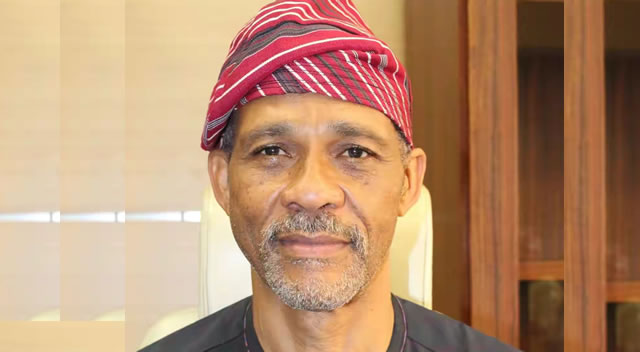

Lagos warns residents on Cholera outbreak, records five deaths
The Lagos State Government has called for heightened vigilance and adoption of precautionary measures as the state records cholera outbreak resulting in five fatalities.
The state Commissioner for Health, Prof. Akin Abayomi, in a statement on Tuesday, warned that the state had recorded an excess report of severe gastroenteritis cases in the last 48 hours.
Speaking on the surveillance reports, Abayomi disclosed that cases of severe gastroenteritis have been reported in communities around Eti-Osa, Lagos Island, Ikorodu and Kosofe Local Government Area of the state.
He noted that the outbreak resulted in about 60 hospital admissions, and five deaths recorded mainly from patients presenting late with extreme dehydration.
“We have activated a statewide heightened surveillance and response.
“The Ministry of Health Directorate of Environmental Health and the Lagos State Environmental Protection Agency have been alerted to investigate a possible water contamination source in the Lekki, Victoria Island axis.
“We suspect a possible cholera outbreak; however, samples have been taken for confirmation,” he said.
The commissioner noted that following recent rainfall, Lagos had witnessed a notable increase in cases of severe vomiting and watery stools, adding that urban slums and crowded areas with poor sanitation are particularly at risk.
Abayomi explained that cholera is a highly contagious disease that causes severe diarrhoea and can be life-threatening.
He added that it posed a significant health burden in areas with poor water treatment and sanitation, and could impact the state.
“Cholera spreads through direct transmission by eating or drinking contaminated food or water, and indirect transmission due to poor sanitation and lack of handwashing.
“Symptoms of cholera include; severe watery diarrhea, vomiting, rapid dehydration, muscle cramps, fever and sometimes collapse,” he said.
According to him, treatment options for cholera include dehydration, and using Oral dehydration Salts for mild to moderate dehydration.
He noted that intravenous fluids are used for severely dehydrated patients, given only in medical facilities and supervised by medical personnel.
“To prevent cholera, citizens are urged to ensure safe drinking water by boiling, chlorinating, or using bottled water, and avoiding ice products made from untreated water.
“Maintaining proper sanitation by using toilets, safely disposing of faeces, and avoiding open defecation is crucial.
“Practicing good hygiene, such as washing hands with soap and clean water regularly, especially before eating, preparing food, and after using the toilet, is essential and following food safety guidelines,” Abayomi advised.
He also advised residents to rely on the state Ministry of Health, Nigeria Centre for Disease Control and accredited local health facilities for guidance, advice, and updates on prevention, treatment, and management.
The commissioner disclosed that suspected cases should be promptly reported via the following emergency hotlines: 08023169485, 08137412348, or by using helplines 767 or 112 to safeguard communities.
Abayomi promised to keep the public informed and restated the state’s commitment to ensuring the health and well-being of its citizens.
The NCDC showed that as of April 28, Nigeria had reported 815 suspected cholera cases and 14 deaths across 25 states.




